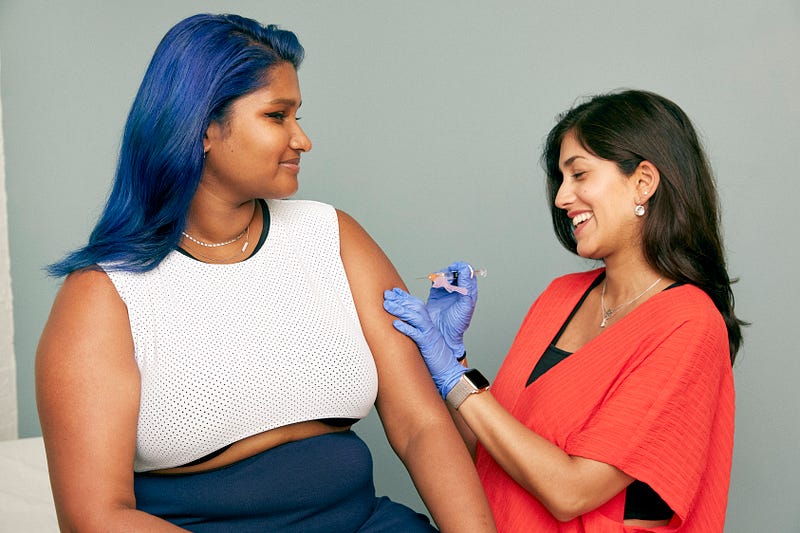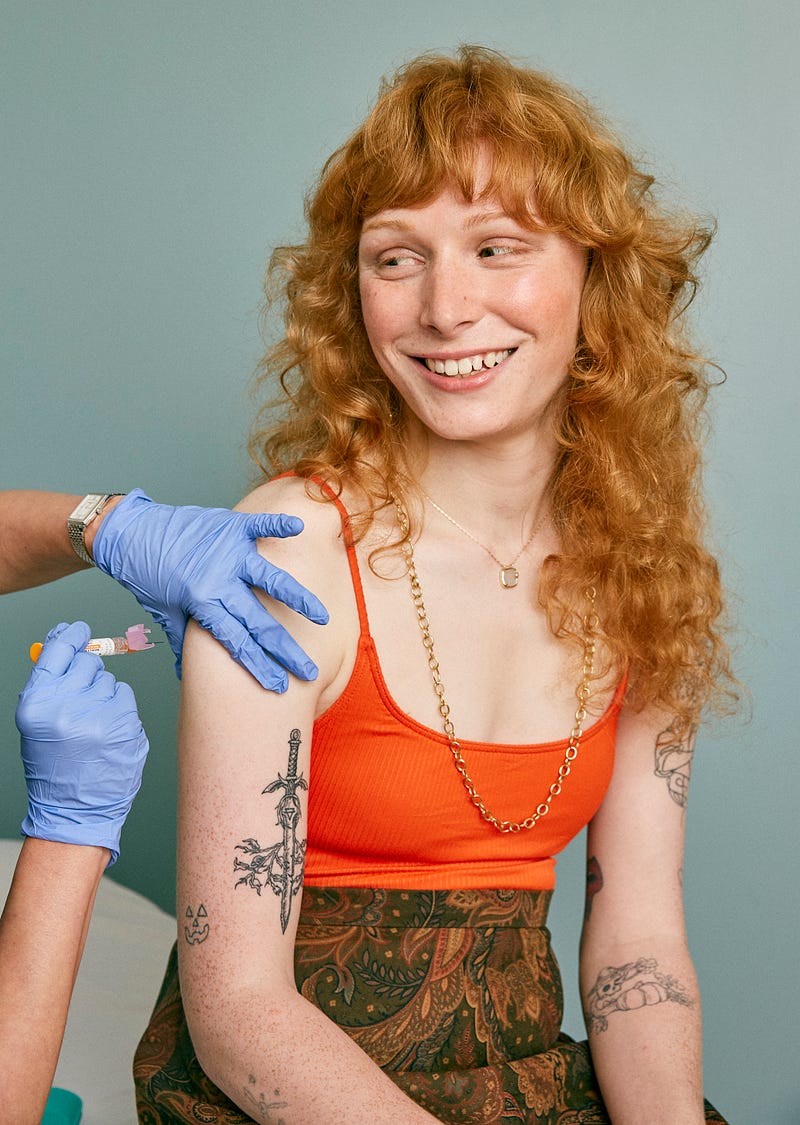Should We Be Concerned About the COVID-19 Vaccine Developments?
Written on
The Vaccine Debate in 2020
In a typical year, discussions surrounding vaccines spark intense debate. This is likely due to their proven safety and efficacy, their role in eradicating numerous lethal diseases, or simply because they are a universal healthcare intervention. Regardless of the cause, the topic of vaccines remains a contentious issue, and 2020 has been no exception.

The Promise of Vaccination
The potential impact of a vaccine during a pandemic cannot be overstated. As someone who frequently writes about vaccination, it's fascinating to observe the media frenzy that follows every incremental update on these new vaccines, which have transitioned from a distant aspiration in researchers' minds to a tangible solution being administered to the public to combat COVID-19.
However, a recurring concern has emerged, especially after news broke that a vaccine trial was halted due to a serious adverse event: Are we expediting the approval process too much? And, more critically, are the COVID-19 vaccines safe?
The straightforward answer is yes, but with conditions. While we can't be completely certain, the information we have so far is encouraging.

Vaccine Approval Process
To secure a vaccine's approval is a meticulous and prolonged endeavor. This is essential because vaccines are designed to be the safest medical interventions available; after all, they are administered primarily to healthy individuals. While a medication aimed at treating severely ill patients might tolerate some risk, ensuring the safety of a vaccine is paramount.
Typically, this process involves extensive trials with tens of thousands of participants, conducted over several years.

The approval process is divided into four phases. The initial two phases involve administering the vaccine to a small group to verify that they do not experience severe side effects and that their immune systems respond positively. Phase 3, the critical stage, involves a much larger population split into two groups: one receives the vaccine while the other gets a placebo. This phase assesses the vaccine's efficacy and identifies any rare but serious side effects that earlier trials might have missed. Lastly, Phase 4 focuses on monitoring long-term safety once the vaccine is distributed widely.
Numerous COVID-19 vaccines have already passed Phases 1 and 2, which is expected given that these phases only require a small number of participants. While the timeline for these trials has been significantly reduced, the urgency is warranted, as the primary goal is to confirm that most individuals receiving the vaccine develop an immune response without immediate severe reactions.

Concerns About the Approval Timeline
Legitimate worries have surfaced regarding the expedited vaccine approval process, particularly for Phase 3 trials, which typically take several years to complete. This phase requires thousands of healthy volunteers to participate in experimental trials, and it’s crucial to monitor them long enough to ensure any rare vaccine-related issues are identified. The recruitment and retention of participants are challenging, and ensuring the robustness of the study is critical. This is partly why many vaccines fail at this stage, with an average duration of around three years.
Most governments are planning to launch COVID-19 vaccinations early next year, aiming for a timeline of 6 to 10 months for trials.
Is this a cause for concern? It depends.
The most crucial phrase in epidemiology is "it depends." Had someone told me last year that a government would consider mass vaccination based on preliminary results from a Phase 3 trial lasting six months, I would have found that concerning.
Yet, in the context of an ongoing pandemic, the situation is different. Consider the Moderna vaccine trial, which has shown promising results in Phases 1 and 2 and is being conducted across 100 locations worldwide. Millions of vaccine doses have already been purchased by various governments.
Am I anxious about this trial? Let's examine the facts: it spans 24 months, adheres to a stringent protocol, and aims to recruit thirty thousand participants. This is a substantial number for a Phase 3 trial, and a review of the study protocol reveals a robust research design.

Addressing the Concerns
You might wonder why concerns persist. Despite the study's extensive timeline, many governments are ready to roll out vaccines after merely six months of data collection. This means that long-term effects may remain unknown when the vaccine is released. While these issues are likely to be infrequent and not severe, the possibility cannot be disregarded.
This leads back to the "it depends" principle. In a typical year, I would argue that the risk—however minimal—of rare long-term side effects from a vaccine necessitates waiting for the completion of Phase 3 trials. However, this is not a typical year. The mounting health and social costs associated with COVID-19 could drastically diminish if the vaccine proves to be both safe and effective.
This brings us to the challenging calculations often involved in public health decisions. After six months, we will have information on whether the vaccine prevents COVID-19 in the short term. If it does, is it worth the risk of potential future issues against the immediate benefit of effective immunization?
Unfortunately, this is a question only individuals and their governments can answer. Each person must weigh the substantial costs of COVID-19 against the potential risks of an ongoing vaccine trial. While I cannot predict outcomes, I can say that, as an epidemiologist, I would be first in line to receive a COVID-19 vaccine if it passes through a shortened Phase 3 trial without major complications. Yes, risks exist, but the remarkable scientific efforts behind these trials and the severe impacts of the disease itself suggest that the potential benefits far outweigh the risks. This is, of course, contingent upon the trial confirming a safe and effective vaccine.
In this regard, AstraZeneca's decision to pause their Phase 3 vaccine trial due to a suspected adverse event is quite reassuring. This is the kind of caution we want to see—ensuring that even a single reported incident among thousands is thoroughly investigated, reflecting their commitment to vaccine safety before public distribution.
In conclusion, you likely do not need to worry excessively about the COVID-19 vaccines currently under development.
However, as with most epidemiological considerations, it truly does depend.
Mission Possible: The Race for a Vaccine - This video explores the incredible journey and challenges faced in the development of vaccines during a global pandemic.
Hearing: The Science of COVID-19 Vaccines and Encouraging Vaccine Uptake - A discussion on the scientific underpinnings of vaccines and strategies to increase public willingness to receive them.